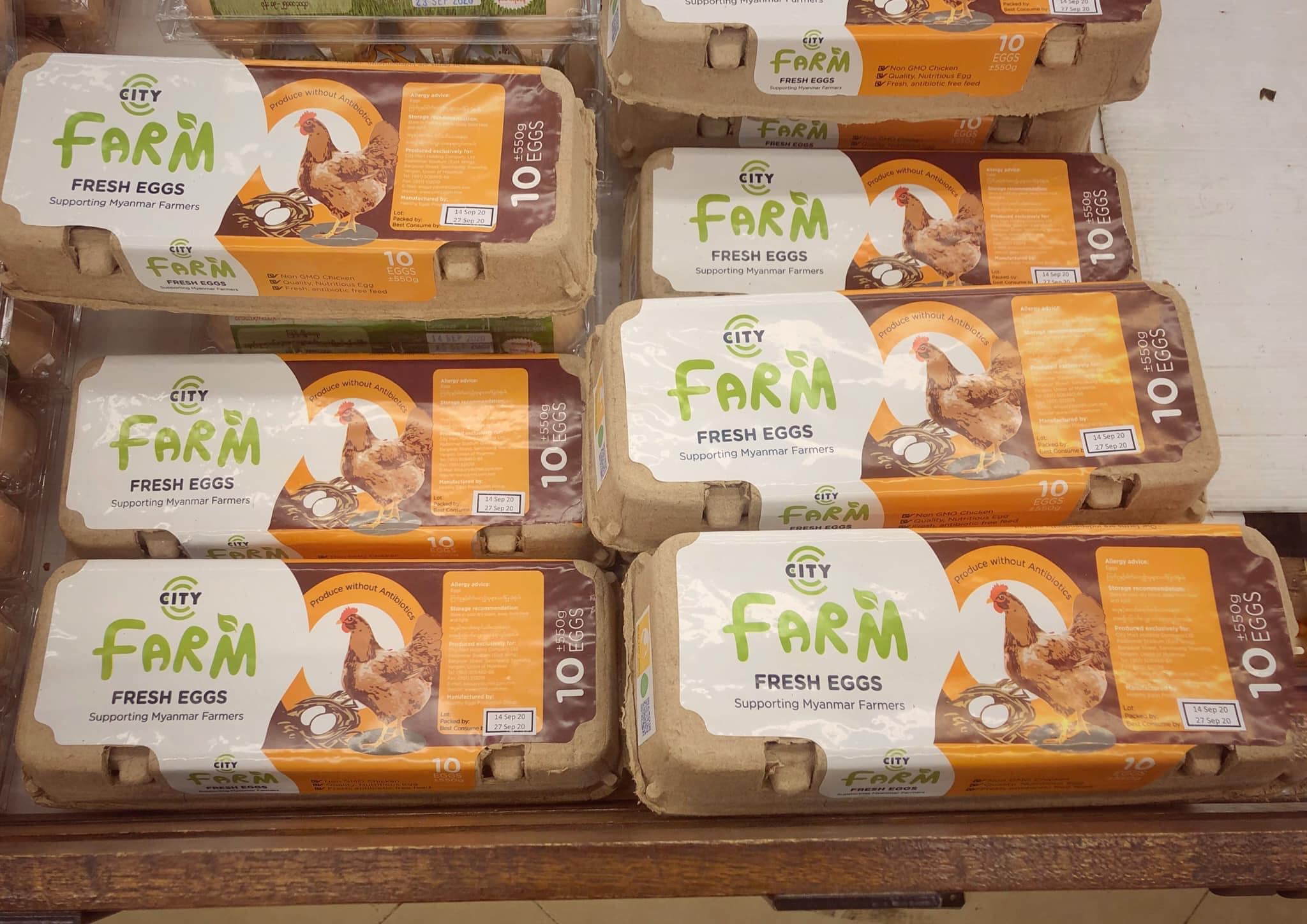In support of WOAH’s Strategic Objective: Encourage implementation of international standards
Myanmar’s AMR National Action Plan (2017-2022) has five key strategic objectives, including objective 4, which aims to optimise the use of antimicrobial medicines to address AMR.
Objective 4.1 of the NAP specifically mentions monitoring antimicrobial usage in the animal sector and monitoring the residues of antimicrobials in the food chain to promote prudent use of antimicrobials in livestock production.
Since the signing in 2018 of a high-level multi-stakeholder joint statement by Myanmar’s Ministry of Agriculture, Livestock and Irrigation, and the Ministry of Health and Sports to combat antimicrobial resistance, the Livestock, Breeding, and Veterinary Department (LBVD) with support of FAO ECTAD in Myanmar, initiated activities to reduce the use of antimicrobials in poultry production in April 2019.
One such activity was support for the production of antibiotic-free eggs (“healthy eggs”) initiated in three poultry farms in Nyaung Na Pin, Yangon. Two farms use the caged system (picture 1) holding between 6,000 and 13,000 birds, and the third is a free-ranging farm (picture 2) with 2,000 birds. The birds are nourished with feed free of antibiotics and are managed using good hygiene and biosecurity practices.
The Veterinary Assay Laboratory (VAL) in Yangon under the LVBD conducts tests (picture 3) for the presence of antibiotics in feed and water used in these farms, and tests eggs before they are certified as antibiotic-free or “healthy eggs”. The FAO ECTAD supported the initial set up of a laboratory diagnostic capacity at the VAL for residue tests and supported honorarium fees for laboratory staff involved in the project.
The eggs are also tested for the presence of colistin, which is a critical antimicrobial agent in human health listed as a reserve group antibiotic under the World Health Organization’s AWaRe list. Based on the laboratory certification and also based on the overall management practices, the Myanmar Organic Agriculture Group (MOAG), an independent certifying agency, then certifies the farms as part of the Healthy Eggs Production Group (HEPG), and the eggs are allowed for sale through the City Mart Holding Inc. (CMHL), a private wholesale and retailing shop, at a premium price. The CMHL accepts eggs from these farms for sale as “healthy eggs” only upon production of certificates from VAL. The CMHL provides double the normal price for these eggs. In the initial stages of the project, VAL provided free testing services to these farms. However, VAL now charges some fees for the services.
Although the price of these eggs is almost twice as compared with non-organic eggs, the market demand for such eggs is about 48,000 eggs per farm in a month. After the end of the FAO-ECTAD project in September 2019, the LBVD is continuing to support testing of feed, water, and eggs for antibiotic content to support initiatives in reducing the use of antimicrobials in poultry production.
The LBVD is working closely with FAO ECTAD, the Myanmar Livestock Federation (MLF), Ideal Poultry Farm, City Mart Holding Inc., and the Myanmar Organic Agriculture Group (MOAG) in an initiative targeted at reducing the use of antimicrobials for poultry production in Myanmar, in support of an overarching aim to address AMR in the animal sector.
The LBVD district, township and laboratory officers visit these farms for inspection and technical back-stopping services. The three farms are in the process of applying for Good Animal Husbandry Practices (GAHP) certificates from the LBVD with technical support of the veterinary township officers. The LBVD, MOAG, MLF and CMHL undertake routine monitoring of the farms to ensure that the farms adhere to good management practices including good hygiene and biosecurity practices.
Vaccination against commonly occurring poultry diseases, such as Newcastle Disease, Infectious Bronchitis, Infectious Bursal Disease and Coryza, are also routinely undertaken.
Article submitted by: Dr Moe Moe Thein and Dr Min Thein Maw, LBVD, MoALI, Myanmar
For further information, please contact at [email protected] or [email protected]
Picture 1. Caged layer farm (picture courtesy: Dr Moe Moe Thein)
Picture 2. Deep litter poultry farm (picture courtesy: Dr Moe Moe Thein)
Picture 3. Eggs being tested for antibiotic residues at VAL, Yangon (pictures by Dr Moe Moe Thein)
Picture 4. Healthy eggs being advertised for sale (picture by Dr Moe Moe Thein)
Banner. Healthy Eggs Myanmar (Facebook business page).
